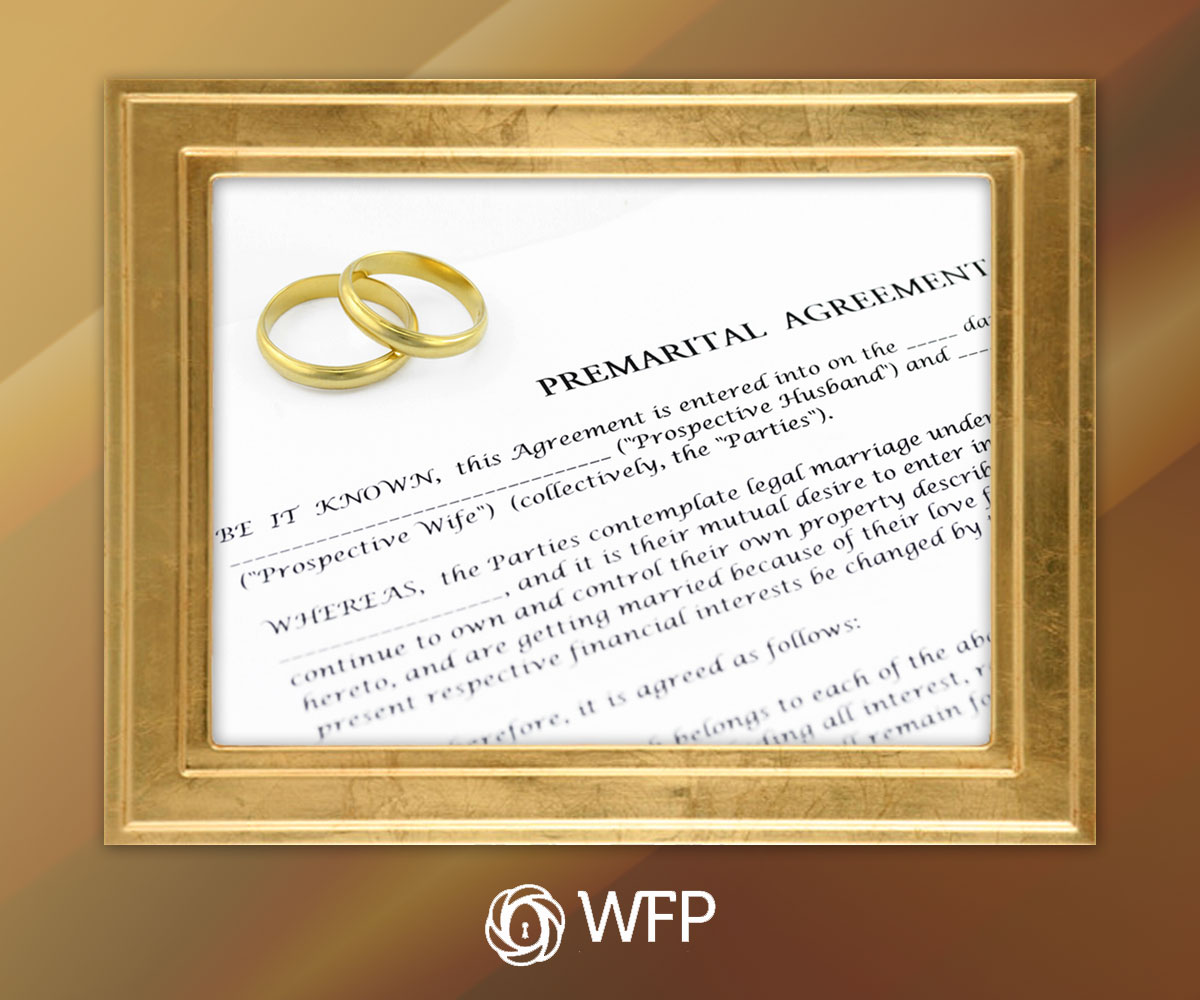Prenuptial agreements, or “prenups,” can be thought of as a bit controversial, but they are effective tools to ensure a fair and equitable distribution of assets, not only in the unfortunate case of divorce, but also when it comes to estate planning. Prenups are also becoming more popular–according to a study conducted by the American Academy of Matrimonial Lawyers, 62 percent of attorneys said prenups are on the rise, particularly among millennials.
Providing Clarity
Unless your wishes are clearly spelled out, in some states (known as “community property states”), the surviving spouse is automatically entitled to a substantial portion of your assets. A prenup can more clearly and accurately spell out what portion of the estate is left to the spouse. Prenups can also help decide what property or properties are considered shared or singularly owned. This delineation will help alleviate potential issues that might arise among surviving family members after a spouse’s passing.
Protection From Prior Debts
A prenup can offer protection to the surviving spouse from creditors trying to collect on a debt that preceded the marriage owed by the decedent. Without a prenup, creditors can attempt to collect from the surviving spouse, undoubtedly causing more undue stress and suffering during a difficult time.
Working With a Will
A last will and testament is not always as iron clad as people believe it to be. A will is certainly an important estate planning tool and it can work best in conjunction with a prenup. At Wild Felice & Partners, we can walk you and your family through the estate planning process and help set up a plan that works best for all parties. A last will and testament should be revisited periodically to reflect major life events or changes–such as a marriage or divorce but also birth of a child or grandchild, a significant increase or decrease of assets, a serious illness or injury, etc.
Many couples will wait until after the marriage to work out an agreement, this is referred to as a “postnuptial” agreement. These can function similarly to a prenup, but consult with a lawyer about your state’s laws as many have different requirements for “postnup” agreements.
Prenups are an extremely useful tool in estate planning and work well with a traditional will. If your wishes are not clearly spelled out, shared with family members and reviewed by an attorney, you risk causing a great deal of confusion and turmoil after your passing. Mentioning your wishes to a spouse or sibling doesn’t hold up in court. Contact a WFP attorney today to discuss your estate planning options.